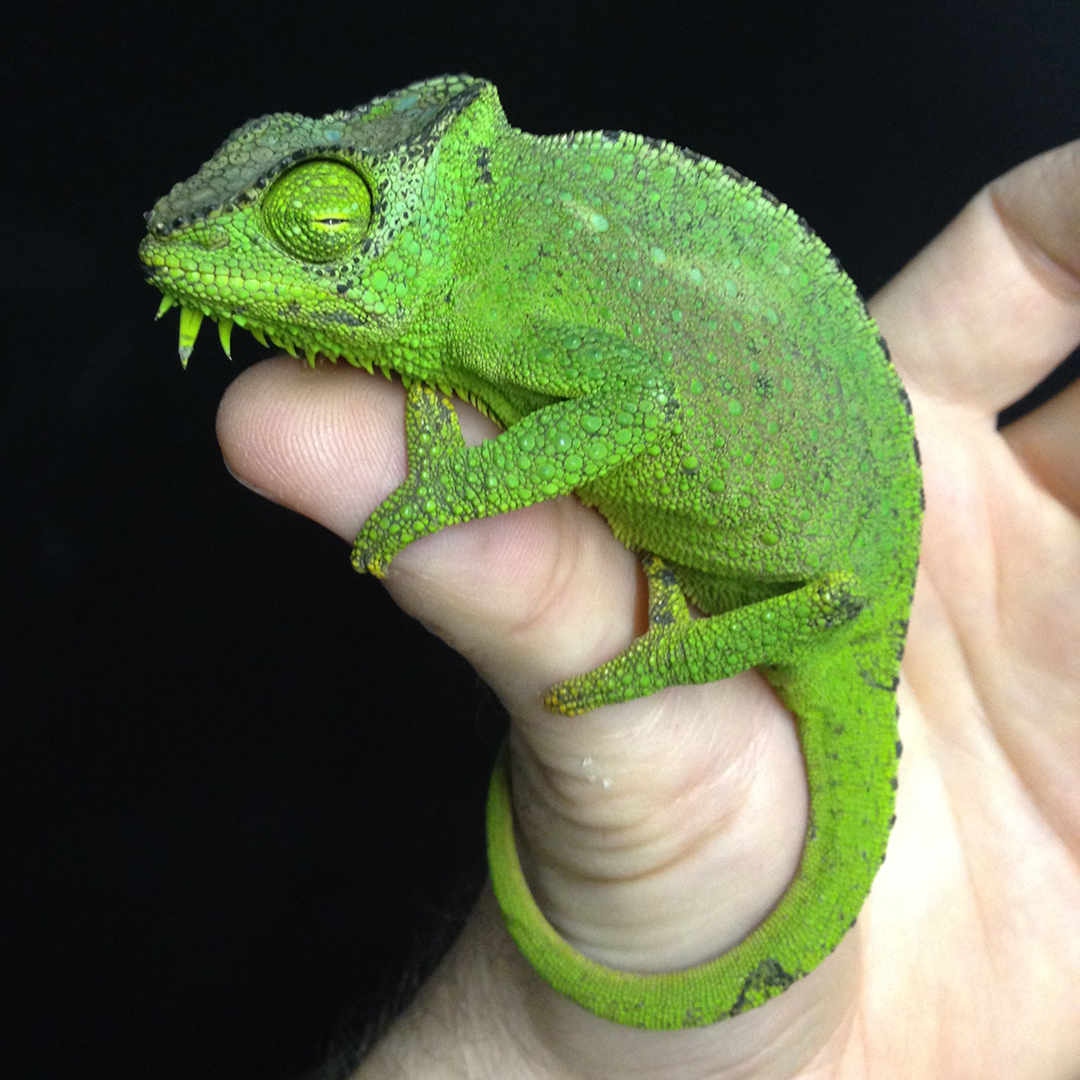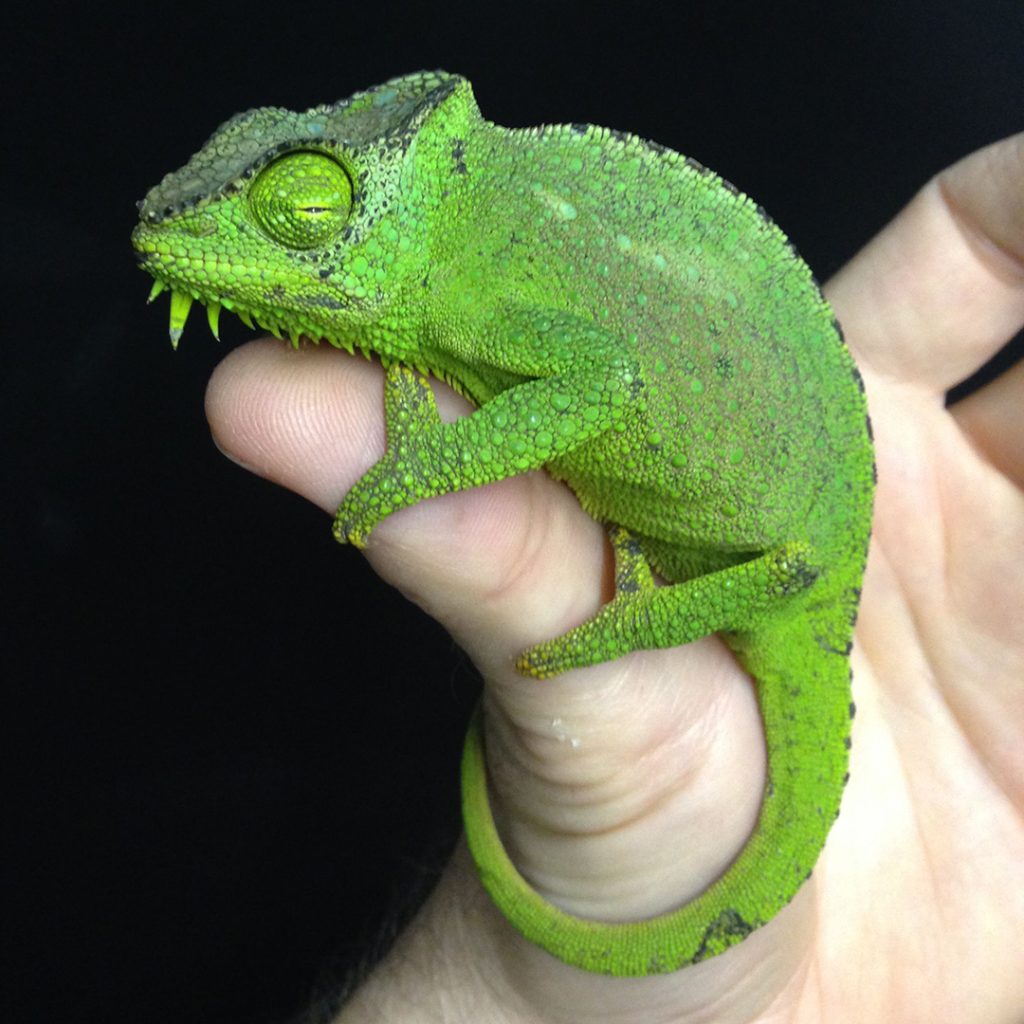Are you puzzled by your chameleon sleeping during the day? It could be a cause for concern, especially if your pet is usually active during daylight hours. But don’t worry, there are several reasons why your chameleon might be taking a nap during the day, and in this article, we’ll explore some of the most common ones.
Chameleons are fascinating creatures, and their behavior can be quite enigmatic at times. From changing colors to sleeping during the day, they always keep us on our toes. So, if you’re curious about why your chameleon is napping, read on to discover the possible explanations behind this behavior.
It is normal for chameleons to sleep during the day. They are primarily active during the early morning and late afternoon. This is because they are cold-blooded and need to regulate their body temperature. If your chameleon is sleeping during the day, it is likely because it is trying to conserve energy and stay cool. As long as your chameleon is eating and drinking normally, there is no need to worry.

Why is My Chameleon Sleeping During the Day?
Chameleons are fascinating creatures that are known for their ability to change colors and blend into their surroundings. However, it is not uncommon for chameleons to sleep during the day, which can be concerning for their owners. If you have noticed that your chameleon is sleeping during the day, there are several reasons why this may be happening.
Reason 1: Natural Behavior
One of the most common reasons why chameleons sleep during the day is because it is their natural behavior. Chameleons are primarily active during the day, but they may take naps or rest periods throughout the day as well. This is not necessarily a cause for concern unless your chameleon is sleeping excessively or showing other signs of illness.
If you are concerned about your chameleon’s sleeping habits, it is important to observe their behavior over time to determine if this is a natural pattern for them. Additionally, you should ensure that your chameleon has a comfortable and appropriate habitat to support their natural sleeping habits.
Reason 2: Stress or Illness
Another reason why chameleons may sleep during the day is due to stress or illness. If your chameleon is sleeping excessively or showing other signs of illness, such as lethargy or loss of appetite, it is important to seek veterinary care as soon as possible.
Stress can also cause chameleons to sleep during the day. If your chameleon is stressed, they may be hiding or avoiding contact with people or other animals in their environment. This can lead to changes in their sleep patterns as they try to cope with their stress.
How to Support Your Chameleon’s Natural Sleep Habits
If you want to support your chameleon’s natural sleep habits, there are several things that you can do. First, you should ensure that your chameleon has a comfortable and appropriate habitat that provides them with adequate space and resources. This includes a basking spot, a hiding spot, and appropriate temperatures and humidity levels.
Additionally, you should try to establish a consistent routine for your chameleon. This can help them feel more secure in their environment and may help them regulate their sleep patterns. You should also ensure that your chameleon has access to fresh water and a balanced diet that meets their nutritional needs.
The Benefits of Understanding Your Chameleon’s Sleeping Habits
Understanding your chameleon’s sleeping habits can help you provide them with the best possible care. By observing their behavior and making adjustments to their environment as needed, you can help ensure that your chameleon is healthy and happy. Additionally, understanding your chameleon’s sleeping habits can help you identify potential health issues early on, which can improve the chances of successful treatment.
Chameleon Sleeping Habits vs. Other Reptiles
It is important to note that chameleon sleeping habits may differ from other reptiles. For example, some reptiles are primarily active at night and sleep during the day. If you have multiple reptiles in your household, it is important to understand their individual sleep habits and adjust their environments accordingly.
Conclusion
In conclusion, chameleons may sleep during the day for a variety of reasons, including natural behavior, stress, and illness. By observing your chameleon’s behavior and providing them with a comfortable and appropriate habitat, you can help support their natural sleep habits and ensure that they are healthy and happy. If you have any concerns about your chameleon’s sleeping habits, it is important to seek veterinary care as soon as possible.
Frequently Asked Questions
Why is My Chameleon Sleeping During the Day?
Chameleons are arboreal reptiles that usually sleep during the night and are active during the day. However, if you notice that your chameleon is sleeping during the day, it could be due to various reasons.
One reason could be that your chameleon is not getting enough sleep during the night. Make sure that the enclosure is dark and quiet during the night to allow your chameleon to have a good rest. Another reason could be that your chameleon is too cold or too hot. Ensure that the enclosure’s temperature is within the recommended range for your chameleon species.
What Should I Do if My Chameleon is Sleeping During the Day?
If your chameleon is sleeping during the day, it is essential to investigate the possible causes. Check the enclosure’s temperature and lighting to ensure that they are appropriate for your chameleon species. Also, ensure that your chameleon is getting enough sleep during the night by providing a quiet and dark environment.
If you have ruled out environmental factors, it is recommended to take your chameleon to a veterinarian to check for any underlying health issues that could be causing the daytime sleepiness.
Can a Chameleon Die from Sleeping During the Day?
Chameleons sleeping during the day is not a concerning issue if it happens occasionally. However, if it becomes a persistent behavior, it could be a sign of an underlying health issue. In severe cases, untreated health issues could lead to death.
If your chameleon is persistently sleeping during the day, it is advisable to take them to a veterinarian to check for any underlying health problems and prevent any potential risks.
What is the Recommended Sleeping Time for Chameleons?
Chameleons require between 10 to 12 hours of sleep per night. However, the sleeping time could vary depending on the chameleon species, age, and environmental conditions.
It is essential to provide your chameleon with an appropriate environment that allows them to rest adequately during the night. Also, avoid disturbing your chameleon during their sleeping time to ensure that they get enough rest.
What are the Signs of a Healthy Sleeping Chameleon?
A healthy sleeping chameleon should have a relaxed body posture, slow breathing, and closed eyes. Their body should be free of any visible stress signs such as bulging eyes, gaping mouth, or raised crest.
If you notice any abnormal sleeping behavior or signs of stress, it is essential to investigate the possible causes, such as environmental factors or underlying health issues, and take appropriate measures to address them.
How does a chameleon sleep?
In conclusion, there are several reasons why your chameleon might be sleeping during the day. Firstly, chameleons are known to be solitary animals, and they need their own space to rest and sleep. Secondly, temperature and lighting play a crucial role in their sleep cycle, as they require specific conditions to maintain their health. Lastly, stress and illness can also affect their sleeping patterns, and it is essential to monitor their behavior closely.
Therefore, if you notice your chameleon sleeping during the day, it is essential to evaluate their environment, including temperature, lighting, and humidity levels. Also, ensure that they have adequate space to rest and sleep comfortably. In case of illness or stress, seek professional help to identify and address the underlying problem.
In summary, understanding your chameleon’s sleeping patterns is crucial to ensure their overall health and well-being. By providing them with the right environment and monitoring their behavior, you can help them maintain a healthy sleep cycle and prevent any potential health issues.

